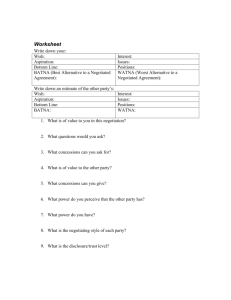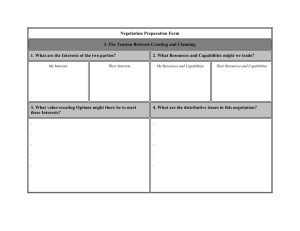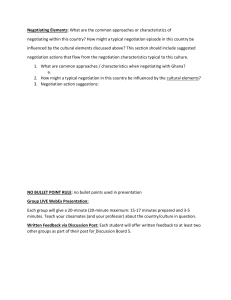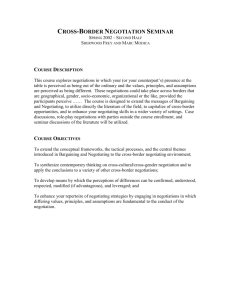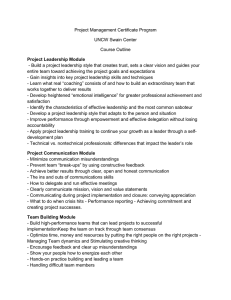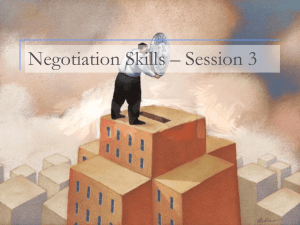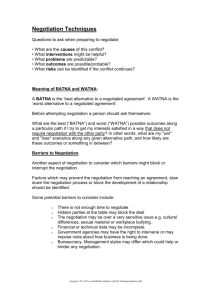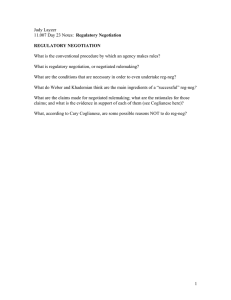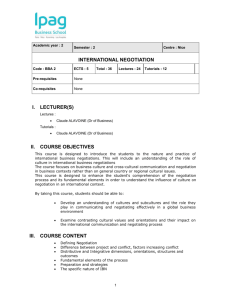06 - Quick Reference Sheets
advertisement
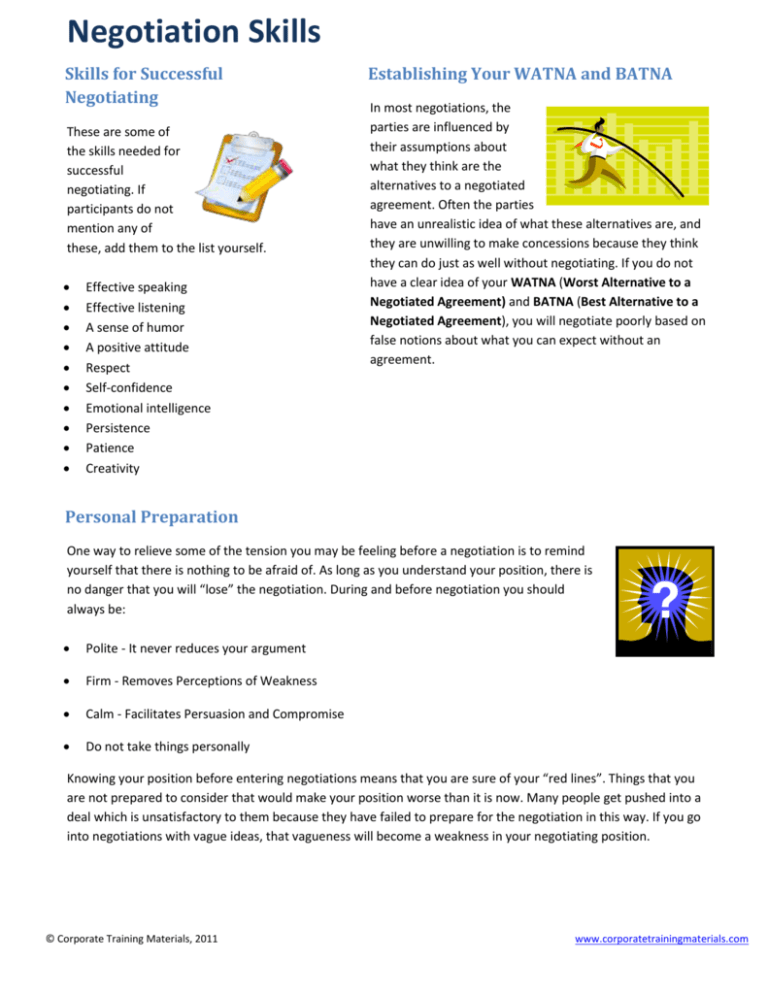
Negotiation Skills Skills for Successful Negotiating These are some of the skills needed for successful negotiating. If participants do not mention any of these, add them to the list yourself. Effective speaking Effective listening A sense of humor A positive attitude Respect Self-confidence Emotional intelligence Persistence Patience Creativity Establishing Your WATNA and BATNA In most negotiations, the parties are influenced by their assumptions about what they think are the alternatives to a negotiated agreement. Often the parties have an unrealistic idea of what these alternatives are, and they are unwilling to make concessions because they think they can do just as well without negotiating. If you do not have a clear idea of your WATNA (Worst Alternative to a Negotiated Agreement) and BATNA (Best Alternative to a Negotiated Agreement), you will negotiate poorly based on false notions about what you can expect without an agreement. Personal Preparation One way to relieve some of the tension you may be feeling before a negotiation is to remind yourself that there is nothing to be afraid of. As long as you understand your position, there is no danger that you will “lose” the negotiation. During and before negotiation you should always be: Polite - It never reduces your argument Firm - Removes Perceptions of Weakness Calm - Facilitates Persuasion and Compromise Do not take things personally Knowing your position before entering negotiations means that you are sure of your “red lines”. Things that you are not prepared to consider that would make your position worse than it is now. Many people get pushed into a deal which is unsatisfactory to them because they have failed to prepare for the negotiation in this way. If you go into negotiations with vague ideas, that vagueness will become a weakness in your negotiating position. © Corporate Training Materials, 2011 www.corporatetrainingmaterials.com

